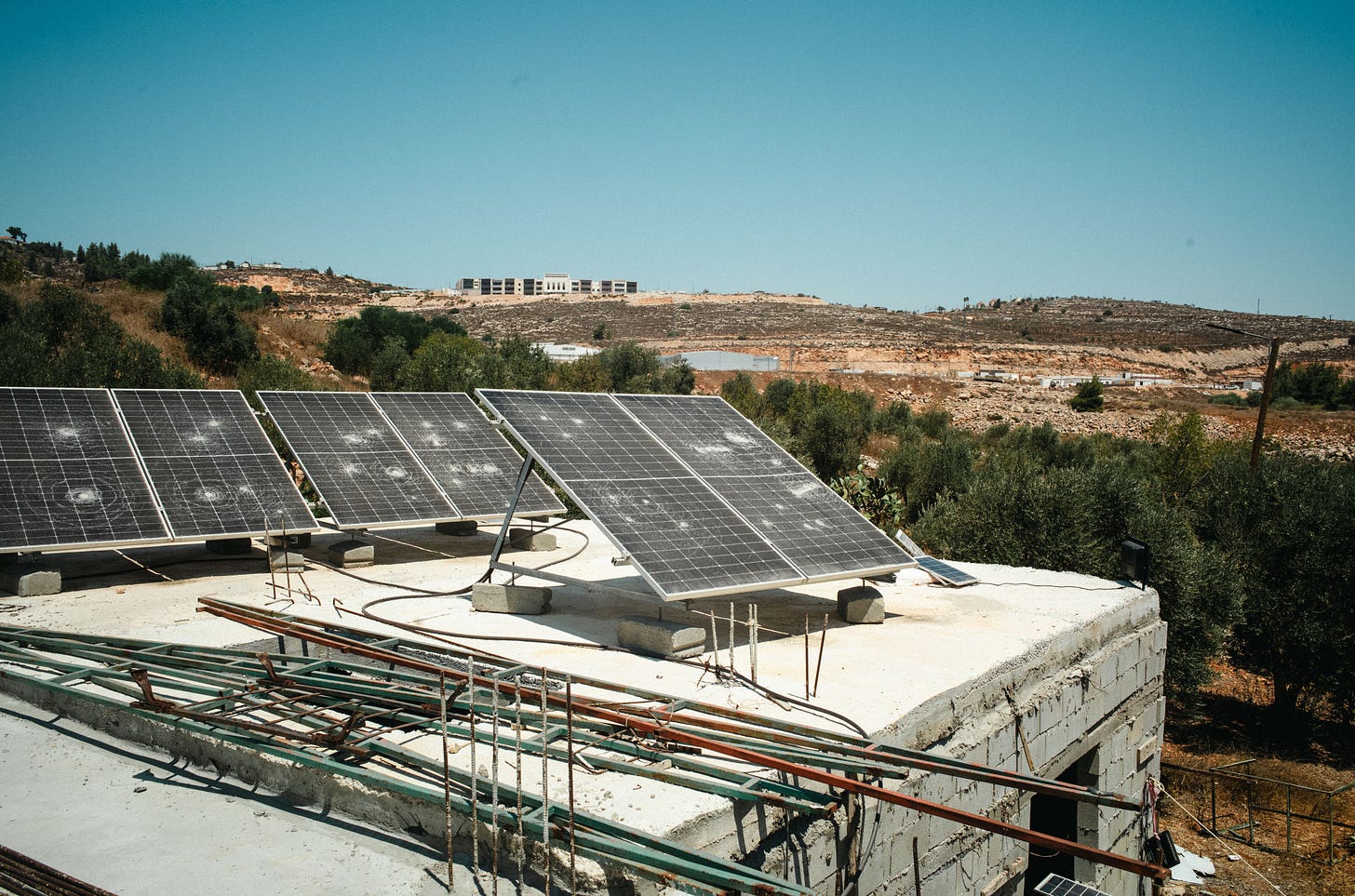Inside of the Palestinian Town That Is 70% American
Former Mayor, Saeed Hussein, Talks Roadblocks, Attacks on Infrastructure, and Daily Life for Palestinian-Americans Living in Turmus Ayya.

Well before the Hamas attacks on October 7th — which increased instances of settler violence and price tag attacks in the West Bank — the town of Turmus Ayya was a regular target for road blocks, fire bombings, and infrastructure attacks. Located a few kilometers away from the Israeli settlement, Shilo, Turmus Ayya hosts an overwhelming percentage of Palestinian-Americans.
During my time in Turmus Ayya, I was introduced to the former mayor, Saeed Hussein. Like nearly 70% of all residents in the town, Saeed is a Palestinian-American who holds passports for both countries. He walks a line between being American in the eyes of customs and immigration agents at Ben Gurion Airport and Palestinian in the eyes of military and settlers in the occupied West Bank.
Incredibly well-versed in the history of the land, the politics of the region, and the struggles of his former constituents, Saeed guided me around the town, offering insight into the lives of some of the locals who are victimized by the neighboring Jewish settlers residing in Shilo.

Saeed took us to the the Abu Awwad family’s home that has experienced increased infrastructure attacks since October 7th. In October 2023, the military put a makeshift roadblock on the only road between the family home and Turmus Ayya, cutting their water supply, restricting their travel into town, and forcing their children to walk on a muddy path through an orchard to get to school.

On January 15th, 2024, Jewish settlers from the neighboring settlement Shilo stormed the family home, throwing stones at the solar panels which provide the house with electricity and vandalizing the entryway with threatening graffiti.

In the occupied West Bank, all building is to be approved by the Civil Administration. Building, as outlined by the Civil Administration, includes renovations to homes which are falling apart due to weathering and repairs to damages caused by settlers or military. In many cases, if a family’s home is weathered by time or natural disaster, damaged by settlers, or demolished by the military, there is no reasonable hope for the family to rebuild.

Saeed explained that if the Abu Awwad family was to make the choice to rebuild or repair a portion of their home as simple as replacing a solar panel, it could result in the demolition of the entire home.
For now, the Abu Awwad family is at a standstill. They are unable to repair the damage to their home and are currently engaged in a drawn-out court battle with the High Court of Justice to remove the makeshift roadblock in between them and Turmus Ayya.
In a follow-up phone interview with Saeed, I asked him one crucial question to learn more about his experience and the experience of other American citizens in Turmus Ayya who face settler violence and military roadblocks: “Have you ever filed any reports to the U.S. Government, Department of State, or our embassy in Israel?”
Saeed replied, “Yes, they do have the whole story about all of the damages they did to us [Palestinian-American residents of Turmus Ayya]. I used to regularly call the U.S. Embassy in attempts to file complaints, but there was no letter assigned. It’s always we call them up, and they [push the attempts to file complaints back to] next week, next week. At this point, it’s a lot […] of reports that the [American Embassy] has from [passport holding] victims.”
At this point in time, for Palestinian-Americans living in or returning to visit their families in the occupied West Bank, justice is a waiting game. The U.S. Embassy does not seem to step in to resolve any issues, nor report on instances of violence against them. And while being recognized as an American at Israeli border crossings and airports, they don’t receive the same recognition by the military in their home town.
In the past, the U.S. Office of Palestinian Affairs made statements condemning attacks on the village and recommending Israeli protection of U.S. and Palestinian citizens. But today, those statements are little more than just talk. In an occupied West Bank where hostilities post-October 7th have only risen, it seems that if you’re at least partially Palestinian, you’re Palestinian. People like Saeed Hussein of Turmus Ayya are a great example of this. No amount of wealth, status, social influence — even American citizenship — can get you out of being harassed, beaten, pushed from your home, or killed.

NOTE FROM THE AUTHOR: During this project while following former mayor, Saeed Hussein, I was able to use a fair amount of 35mm film. It’s not something which I frequently get to use for breaking news stories, but since the lab was able to turn my scans around same-day, I was able to have my film developed while in the process of writing. While the stories I am covering out here are often disturbing and upsetting, shooting film and using my analog camera is still a significant reprieve from the stress and tension of these stories. I’ve made an extra effort to highlight the 35mm photos using the black borders which mimic those which I’ve grown fond of when printing in the darkroom.





Thanks, this is completely unacceptable. Since you’re on the ground, any chance calling the US Embassy in Jerusalem and get their take. This story must go viral.
Thank you for telling this story. This side of the situation is not covered by "main stream" media. It is sad and shameful that the U.S. agencies are not getting involved.